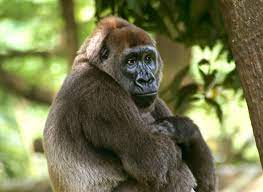Nigeria was once a wildlife rich country. Unfortunately as a country whose population has soared over the last few decades much of the wilderness has been lost.
Afi River forest reserve in the eastern Nigeria cross river state is an forest corridor which connects small fragments of remaining gorilla habitat. However, this may well cease to be the case in the near future, as satellite data has shown significant deforestation in this area. The problem with forest corridors, is that they do not tend to be particularly wide – which means relatively small levels of deforestation can disconnect one end from the other.

In most cases, this deforestation is driven by poverty, and the need for increasing numbers of locals to create a small farm. Fighting between different communities over resources have so far claimed 100 lives. Back 50 years, gorillas and monkey chorus started the morning and walking in the forest you could encounter chimpanzees. This is all gone.
Having said this, as it all still exists in small areas it can be saved. There is a great deal of money that could be brought in to the local economy.
Afi forest reserve is quite small, only covering about 100 square miles. As such, these days cross gorilla visits are rare. There are only around 300 gorillas left – leaving them on the brink of extinction. The threats are a mix of poaching and habitat loss.
As with other places close to wilderness, it is important that the human population is able to increase their standard of living rapidly. The middle stages of development are often the most damaging to the environment.
We need to support this wild area – one of the last wildernesses of Nigeria, if the species that live here are going to survive for much longer.
